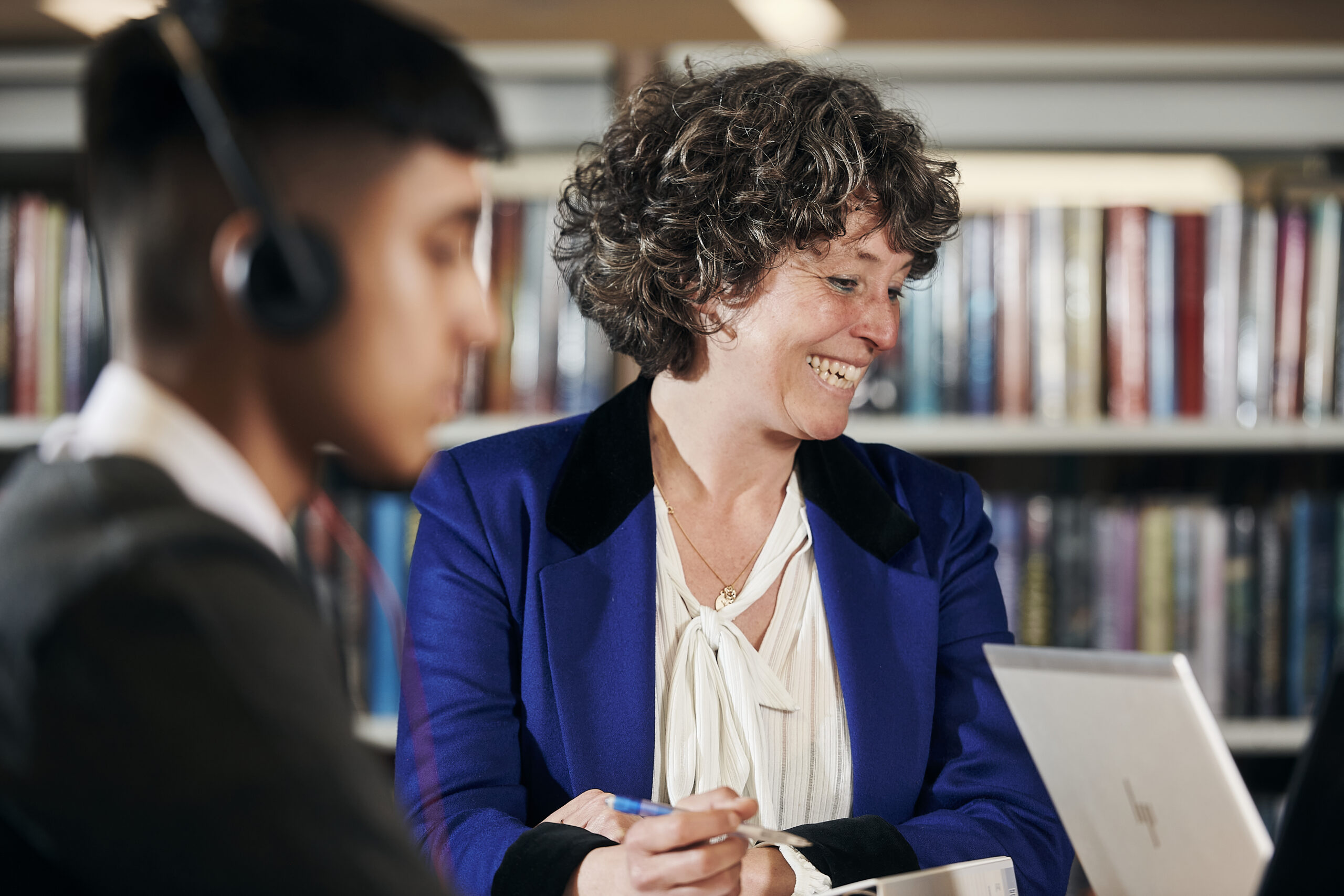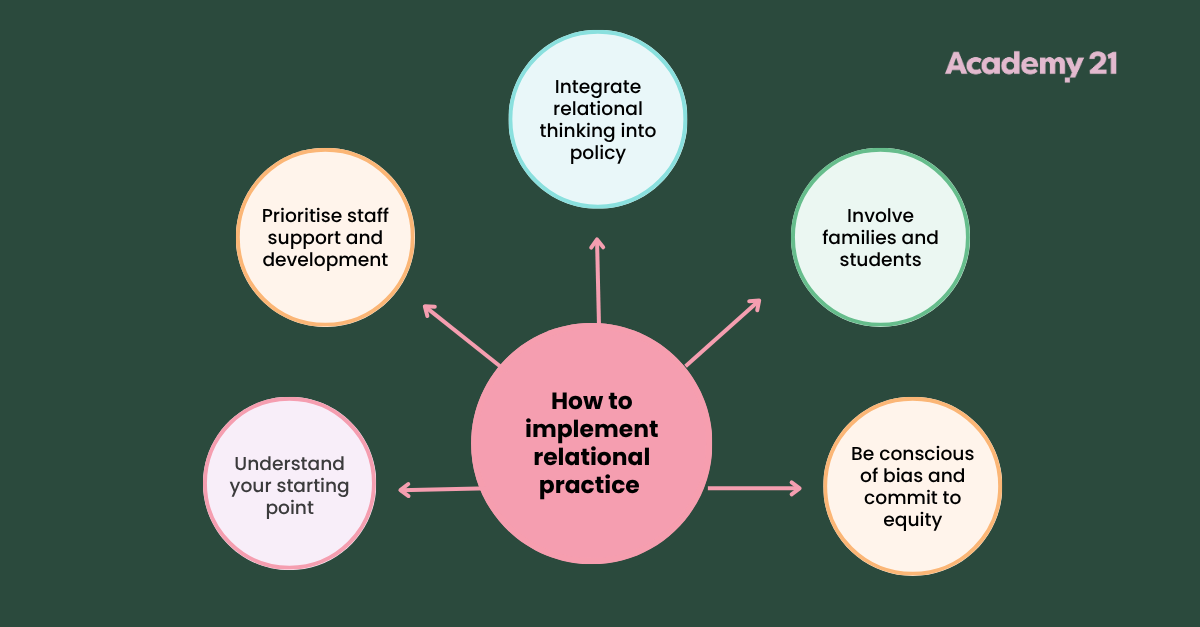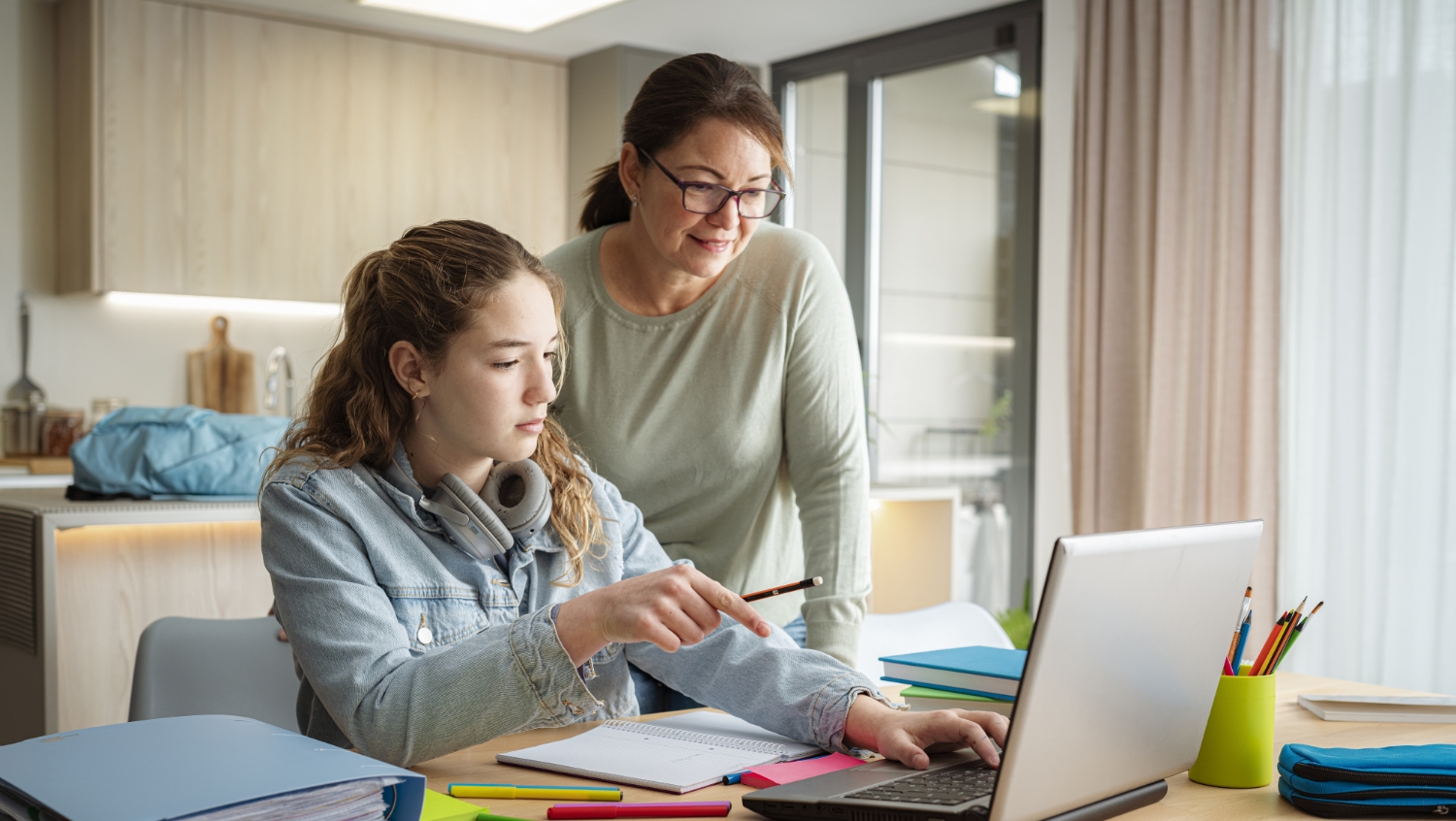What is relational practice and why is it important?

Many students across England wake up every day with a sense of dread, anxious about another day at school. And that’s just the students who can still attend their mainstream education setting. In 2022/23, more than 140,000 pupils were persistently absent due to social, emotional, or mental health (SEMH) needs.
While this is a clear warning sign for the education sector, schools and local authorities are being asked to do more with less: managing rising needs while meeting rigid attendance and behaviour targets. The pressure to act quickly can lead to reactive responses, with little room to explore what pupils need: trust, consistency, and connection.
That’s where relational practice can help. Rooted in decades of research, relational practice places human relationships at the heart of school life.
What is relational practice?
Relational practice is the deliberate, school-wide commitment to building strong, respectful relationships between staff, students, and families. It’s about creating emotionally safe environments where all young people, particularly those who’ve experienced adversity, feel seen, heard, and valued.
Many students referred to alternative provision have complex, overlapping needs that mainstream education may not have fully met. These include social, emotional, and mental health (SEMH) difficulties, neurodivergence, care-experience, and emotionally based school avoidance (EBSA), as well as persistent absence.
Because of these needs, students often arrive to AP with significant challenges: some have faced multiple exclusions, others have experienced trauma or bullying in school, and many have felt invisible or unsupported in large classroom settings. These factors contribute to a deep erosion of trust in education, making it harder for young people to engage through traditional methods. Recognising the distinction between their underlying needs and their difficulties is essential for developing effective, relationship-centred support in AP.
Yet despite growing awareness, relational practice is often misunderstood or inconsistently applied. In some settings, there’s a tendency to view relational approaches as “soft” or lacking rigour. Others may adopt relational language without addressing the systemic change needed to back it up.

At its foundation, relational practice is grounded in well-evidenced approaches:
Attachment-aware practice supports students in forming secure connections with adults, especially important for those with disrupted early relationships.
Trauma-informed approaches help staff understand how adverse experiences shape behaviour and learning.
Restorative methods focus on repairing harm and rebuilding trust rather than punishing mistakes.
Critically, relational practice isn’t about just “being nice.” It involves professional boundaries, consistent expectations, emotional containment, and staff role-modelling — all of which create the conditions for pupils to re-engage safely.
Relational practice vs trauma-informed practice: What’s the difference?
Relational practice and trauma-informed practice are deeply connected, but they are not the same thing. Trauma-informed practice begins with an understanding that many pupils, especially those in AP or at risk of exclusion, are coping with the effects of trauma. These might include neglect, domestic abuse, bereavement, or instability.
A trauma-informed approach helps staff to recognise how these experiences affect a child’s emotional regulation, behaviour, and capacity to learn. It supports teams in adjusting expectations and providing the proper scaffolding for safety and success.
Relational practice, on the other hand, is about how schools and staff act on that understanding. It’s how we show up, respond, and rebuild trust daily. While trauma-informed thinking shapes our awareness, relational practice is the practical, ongoing work of creating safe, consistent relationships where learning and growth occur.
In short, trauma-informed practice gives us the “why,” and relational practice gives us the “how.” Schools don’t need to choose between them: both are essential to creating inclusive, healthy environments where all students, particularly the most vulnerable, can thrive.
How to implement relational practice sustainably in your setting
Relational practice is, essentially, a cultural shift. Embedding it across your school, AP, or trust requires consistent, system-wide change rooted in shared values and evidence-informed actions. Drawing on our extensive experience supporting thousands of students across the UK and leading our successful online alternative provision, here’s how you can begin building a relational approach that lasts:
1. Understand your starting point
Begin by identifying your school or setting’s current relational strengths and gaps. Do staff feel equipped to build trust with students in crisis? Are your policies written with relational values in mind? Are there disparities in behaviour responses across different groups? Use pupil and staff voice, behaviour logs, and safeguarding records to build a clear picture.
2. Prioritise staff support and development
Relational practice relies on emotionally available adults, so you must prioritise staff wellbeing, supervision, and training. Offer regular Continuous Professional Development (CPD) on attachment, trauma, emotional regulation, and unconscious bias. Build in protected time for supervision, reflective practice, and coaching, especially for staff working with pupils at high risk of exclusion. When staff feel safe, supported, and emotionally regulated, they are better able to co-regulate students.
3. Integrate relational thinking into policy
Relational values should be built into your behaviour, safeguarding, and induction policies to ensure everyone understands what is expected and why. The focus should be on being consistent and fair, rather than on strict control or punishment. Instead of simply reacting to problems, your policies should encourage repairing relationships and supporting students to make better choices. Boundaries are still important, but they should be clear, reasonable, and explained in a way that helps students feel safe and respected.
4. Involve families and students
Relational practice works best when it truly listens to and involves the young people and families it supports. Engage families from the very start, not only when challenges arise. Encourage students to help shape the rules and expectations, creating a shared sense of ownership and responsibility. When relationships are strained, use restorative conversations to repair trust and understanding. Many families connected to Alternative Provision or at risk of exclusion have often felt misunderstood or overlooked in previous settings. Demonstrating genuine respect, openness, and empathy can make all the difference in rebuilding these crucial connections.
5. Be conscious of bias and commit to equity
Reaching the so-called “hard-to-reach” often starts with reflecting on how the system has failed to reach them. Many students referred to AP are disproportionately from minoritised backgrounds, live in poverty, or experience compounding barriers. This makes it essential to:
Be curious: Ask what’s behind the behaviour, not just what the behaviour is.
Challenge assumptions: Consider how race, gender, neurodivergence, or trauma histories may influence how a student is perceived and supported.
Use empathy intentionally: This means listening without judgement, validating emotions (“I can see that really upset you”), and avoiding public correction that might create shame.
Be relational, not reactive: Respond to dysregulation with co-regulation – a calm voice, steady tone, and a non-confrontational stance.
Be mindful of the language you use when talking about students. Rather than negatively label behaviour, try to understand what the student might need or express.
Every interaction, no matter how small, communicates something important. The message students must consistently hear is clear: You are safe here. You matter. We believe in your potential. Especially in AP and beyond, these messages lay the foundation for trust, and trust is the key for genuine re-engagement and, eventually, reintegration.

How Academy21 embeds relational practice in a digital learning environment
Relational practice isn’t limited to physical classrooms. It’s entirely possible and, in fact, essential in online learning environments, too. At Academy21, we’ve intentionally designed our provision to support the needs of students who may be vulnerable or facing challenging circumstances. Many of these students arrive with complex backgrounds, school-based trauma, and high levels of disengagement.
Here’s how relational practice is woven into the fabric of our online school:
1. Emotionally available, specialist staff
Our teachers and mentors are trained in trauma-informed and relational approaches. They know how to recognise emotional distress, respond calmly, and build trust over time. Students see the same teachers and members of staff consistently, helping to establish secure, predictable relationships.
2. Individualised support
All our classes are small (a maximum of 15 students), allowing for personal interaction and responsiveness. For many learners with SEMH needs or EBSA, this feels safer than large, overstimulating classrooms. Our inclusive teaching plans also help us build a learning path that works for each student, considering their needs and potential challenges.
3. Positive, non-stigmatising responses
Just like in physical AP settings, we know that punitive approaches rarely lead to lasting change. Instead, we use restorative conversations, gentle check-ins, and clear but compassionate boundaries to guide student behaviour. Our goal is always reconnection, not removal.
4. A partnership approach
We work closely with referring schools and local authorities to ensure our safeguarding, communication, and behaviour protocols are fully aligned. This means sharing safeguarding concerns promptly, providing regular updates on student progress via our user-friendly Mentor Portal, and collaborating effectively to support successful reintegration or sustained positive outcomes.
5. Our technology
From classroom chat pods where students can chat with the teacher individually and ask questions, to learning tools like InspiredAI for personalised learning pathways, our technology is inclusive-by-design and helps our teachers put relational practice into action.
Reconnection starts with relationships
At Academy21, we understand that rebuilding trust and engagement requires consistent empathy, clear communication, and a supportive environment to meet each student’s unique needs.
For school leaders and local authority partners seeking an effective, relationship-focused alternative provision, Over the years, we have proven that this approach works at Academy21, with 93% of our students feeling more confident in their learning.
To learn more about how Academy21 or register a pupil, get in touch with our friendly team below.



